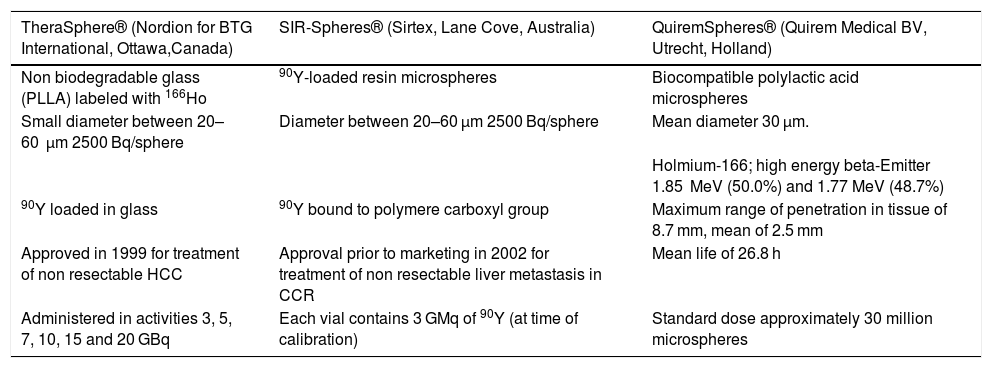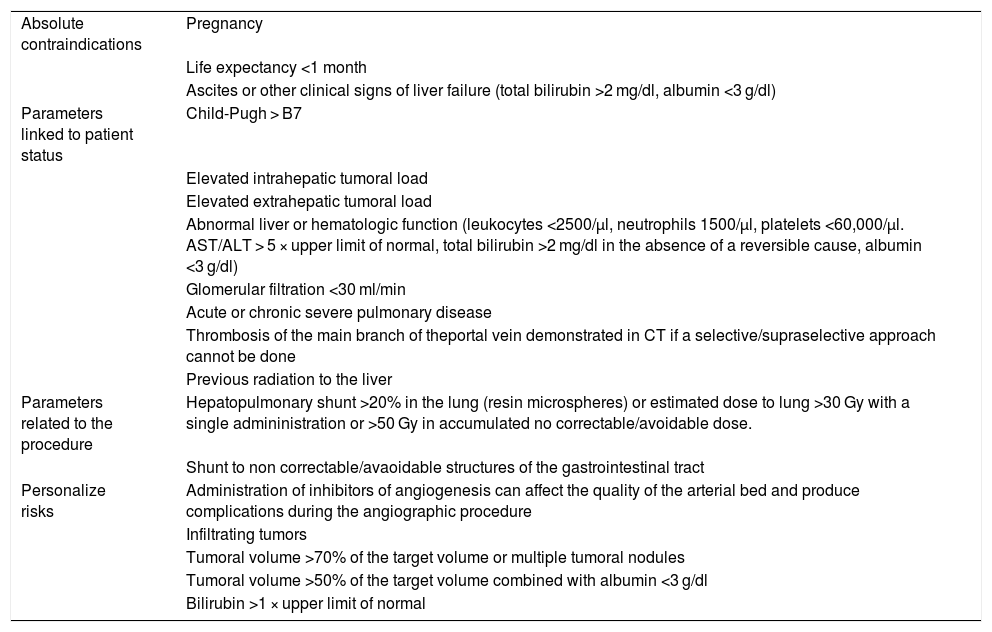The detection of malignant liver tumours is recently increasing. These lesions have frequently arterial vascularization which differs from healthy parenchyma with main portal flow making them especially susceptible to transarterial therapies.
Transarterial Radioembolization (TARE) is an emerging treatment for the management of different liver tumours. Significant improvements in the procedure have been made so it is considered a safe and effective treatment. A multidisciplinary approach is necessary because of the complexity of the procedure. An optimal selection of the patients and good planning arteriography are essential to obtain benefit and reduce complication rate.
Although TARE has been used mostly in hepatocellular carcinoma and liver metastases, indications are currently in expansion as the only treatment or in combination.
La enfermedad hepática tumoral es cada vez más frecuente. Su peculiar forma de irrigación, predominantemente arterial, a diferencia del resto del hígado con flujo fundamentalmente por vía portal, hace a los tumores susceptibles de terapias intraarteriales.
La TARE o “Transartherial radioembolization” ha irrumpido con fuerza como tratamiento de tumores hepáticos de diferentes tipos. Significativas mejoras en el procedimiento a lo largo del tiempo, han hecho de la TARE un procedimiento cada vez más seguro y eficaz. Además, su naturaleza multidisciplinar y la complejidad en su ejecución hacen de esta técnica un reto para todos los especialistas implicados. Una adecuada selección de los pacientes y una correcta planificación del tratamiento son necesarios para conseguir un beneficio óptimo, reduciendo además las complicaciones.
Utilizada hasta ahora en el carcinoma hepatocelular y en las metástasis hepáticas del cáncer colorectal, sus indicaciones están actualmente en proceso de expansión como tratamiento único o combinado con otros tratamientos.
Article
If you experience access problems, you can contact the SEMNIM Technical Secretariat by email at secretaria.tecnica@semnim.es or by phone at +34 619 594 780.

Revista Española de Medicina Nuclear e Imagen Molecular (English Edition)















